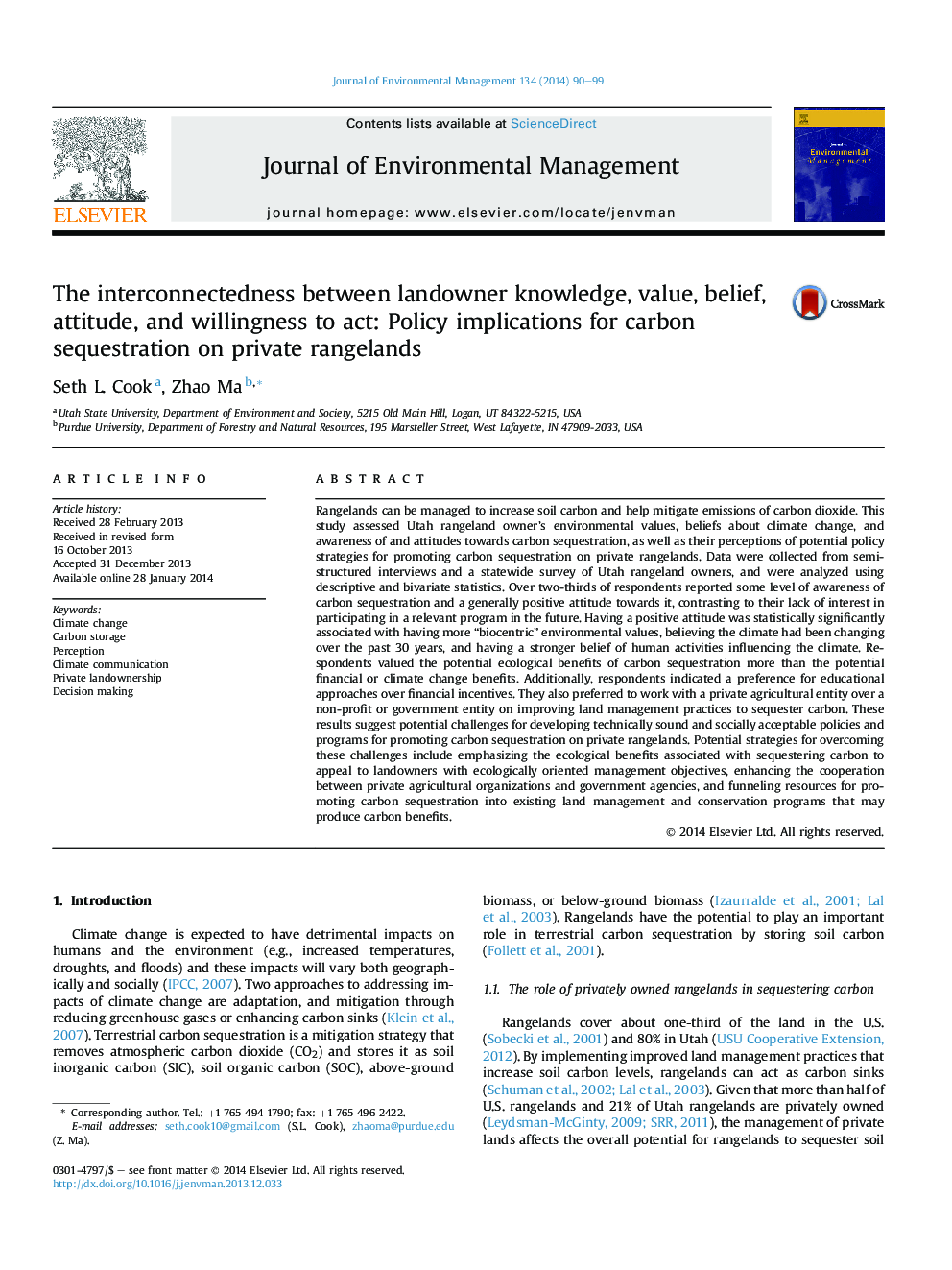| کد مقاله | کد نشریه | سال انتشار | مقاله انگلیسی | نسخه تمام متن |
|---|---|---|---|---|
| 1055987 | 1485278 | 2014 | 10 صفحه PDF | دانلود رایگان |
• Landowners had knowledge and positive attitude but little interest in taking action.
• Perceptions of carbon sequestration were associated with climate change beliefs.
• Ecological benefits were viewed more favorably than financial or climate benefits.
• Educational approaches were preferred over financial incentives.
• Private agricultural entities were preferred over nonprofit or government entities.
Rangelands can be managed to increase soil carbon and help mitigate emissions of carbon dioxide. This study assessed Utah rangeland owner's environmental values, beliefs about climate change, and awareness of and attitudes towards carbon sequestration, as well as their perceptions of potential policy strategies for promoting carbon sequestration on private rangelands. Data were collected from semi-structured interviews and a statewide survey of Utah rangeland owners, and were analyzed using descriptive and bivariate statistics. Over two-thirds of respondents reported some level of awareness of carbon sequestration and a generally positive attitude towards it, contrasting to their lack of interest in participating in a relevant program in the future. Having a positive attitude was statistically significantly associated with having more “biocentric” environmental values, believing the climate had been changing over the past 30 years, and having a stronger belief of human activities influencing the climate. Respondents valued the potential ecological benefits of carbon sequestration more than the potential financial or climate change benefits. Additionally, respondents indicated a preference for educational approaches over financial incentives. They also preferred to work with a private agricultural entity over a non-profit or government entity on improving land management practices to sequester carbon. These results suggest potential challenges for developing technically sound and socially acceptable policies and programs for promoting carbon sequestration on private rangelands. Potential strategies for overcoming these challenges include emphasizing the ecological benefits associated with sequestering carbon to appeal to landowners with ecologically oriented management objectives, enhancing the cooperation between private agricultural organizations and government agencies, and funneling resources for promoting carbon sequestration into existing land management and conservation programs that may produce carbon benefits.
Journal: Journal of Environmental Management - Volume 134, 15 February 2014, Pages 90–99
